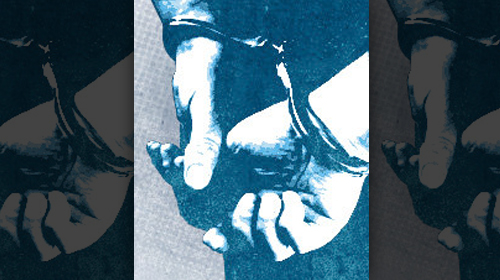
Today, the U.S. has the highest incarceration rate of any country in the world. With over 2.3 million men and women living behind bars, our imprisonment rate is the highest it’s ever been in U.S. history. And yet, our criminal justice system has failed on every count: public safety, fairness and cost-effectiveness. Across the country, the criminal justice reform conversation is heating up. Each week, we feature our some of the most exciting and relevant news in overincarceration discourse that we’ve spotted from the previous week. Check back weekly for our top picks.
Fighting Overincarceration in the States
California:
• Los Angeles County Men’s Central Jail, the largest and most violence-plagued in the nation, can be shut down by the end of 2013, according to a new reportcommissioned by the ACLU and endorsed by the LA County Sheriff. Sheriff Lee Baca publicly credits his new outlook to this report, written by corrections expert James Austin, which found that LA’s jail population could be safely reduced through use of alternatives to incarceration. As a court-appointed monitor of jail conditions, the ACLU for years has documented unjustified force by deputies, retaliation against inmates for lodging complaints, and severe overcrowding and mistreatment of the mentally ill in Men’s Central Jail.
• The state’s “realignment” plan needs companion tools to safely reduce its incarcerated population. The ACLU has responded by championing a pair of bills that passed out of a Senate committee last month. The first bill would use evidence-based tools to safely release low-risk individuals from jail before trial. The second bill would make simple possession of drugs a misdemeanor.
Colorado:
• California isn’t the only state thinking that drug possession doesn’t warrant hard time. The ACLU is backing a bill, currently before a Colorado Senate committee, that would make small amounts of certain drugs a misdemeanor.
Florida:
• The ACLU and every major Florida newspaper roundly criticized Gov. Rick Scott for vetoing a bill that would have provided treatment to low-risk prisoners with drug addiction after completing half their sentences. The Florida legislature passed the bill almost unanimously.
Louisiana:
• Recognizing that life without parole doesn’t make sense for some prisoners, the Bayou State is considering a bill to lift the prohibition on parole for prisoners convicted of nonviolent, non-sex crimes. The bill, introduced with the support of the ACLU, passed a House vote by a wide margin and is now before the Senate.
Maryland:
• The ACLU is sharply criticizing the Baltimore City Police Department for failing to comply with a 2010 settlement in the ACLU’s lawsuit challenging the improper arrests of thousands of individuals each year who were not and could not be prosecuted.
• In more positive news, the ACLU worked diligently to help enact two bills. Gov. Martin O’Malley signed a bill into law that grantsearned time credit to people on parole and a new law that reduces sentences for simple marijuana possession.
Massachusetts:
• State lawmakers are still negotiating the details of a bill that would reduce mandatory minimums for some drug offenses and reduce the “school zone” for drug offenses. However, the bill also creates several severe three strikes penalties. The ACLU is fighting to protect what’s good in this bill and is vigorously opposing what’s not.
Missouri:
• The Missouri House passed a bill to reduce the sentencing disparity between crack and powder cocaine from an abysmal 75-to-1 to 5-to-1. This bill is the product of much advocacy and groundwork by the ACLU and other organizations. The House also passed a bill that would send fewer people back to prison for technical parole violations.
Ending Racial Profiling
• ACLU Executive Director Anthony Romero testified before a U.S. Senate Judiciary Subcommittee to discuss “Ending Racial Profiling in America.” Read the ACLU’s testimony and watch the hearing on the End Racial Profiling Act (ERPA). If passed, ERPA would provide robust safeguards against racial profiling by revising federal guidelines and requiring state and local agencies to collect data and implement policies to prevent profiling. To raise awareness, the ACLU and other advocates hosted End Racial Profiling Day on Capitol Hill and ran a series of blog posts by victims of racial profiling.
Ending the Death Penalty
• First Racial Justice Act Challenge is a Success: In light of powerful statistical evidence of racial bias in North Carolina jury selection, a state judge commuted ACLU client Marcus Robinson’s sentence from death to life without parole. The decision, the first under North Carolina’s Racial Justice Act, is an historic step towards fairness in the administration of capital punishment. You can read more about the case here, including the final opinion.
• Connecticut Repeals the Death Penalty: When Gov. Dannel P. Malloy signed legislation to repeal the death penalty on April 25, the state became the 17th in the nation to do so. The ACLU helped harness the support of a wide coalition to support this bill, including murder victims’ families, law enforcement, and ACLU members.
• The 25th Anniversary of McCleskey v. Kemp: In a series of blog posts, the ACLU commemorated the U.S. Supreme Court’s shameful decision in McCleskey, which held that a defendant cannot rely upon statistical evidence of systemic racial bias to prove his death sentence unconstitutional, no matter how strong that evidence may be. A blog post by the ACLU’s Vanita Gupta explains the wide-reaching impact of that decision, and the creative strategies advocates are using to reform our criminal justice system despite it.

